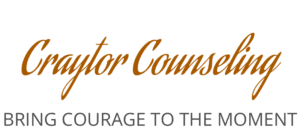Early this morning, I was lying in bed with thoughts of the current crisis in this county. These are simply some wandering thoughts that came to me long before sunrise.
It truly is a crisis in the sense that the impact of the coronavirus will likely have a devastating effect on our economy nationally and globally.
My thoughts shifted to leadership during turbulent times.
In times of great adversity, it’s best to shift our focus to stability and peace. This is not a time for revolution, although it is a good time for a personal inner revolution.
We are living in a time that calls for leadership that can listen to diverse ideas, be reflective and deliberative, and then makes conscious choices that serve the common good.
Our brain is an amazing tool, and it’s important to remember our brain as a tool. It’s easy to default into fear and survival. To be the master of our mind vs. letting our mind master us takes training. We cannot fault so many people in defaulting into fear. However, many people have developed the capacity to observe the mind and choose intentionally from a space of what’s best and most helpful vs. fight and flight. Hopefully, more of us will stand up in personal leadership as masters of our mind and not succumb to fight, flight, or freeze.
Beyond right and wrong: It’s an election season, and there’s plenty of fear-mongering going around. Especially in the US, we love to be right and make others wrong. There’s much to the saying, “Would you rather be happy or right?” For many, we will give up happiness to be right.
What might we choose to replace our pre-occupation with right and wrong? We might ask, “What’s best? What difference matters most at this moment or time? What would be most helpful?”
Nothing wrong with being right, but is it constructive or helpful? Is being right truly making any difference for you? Is justifying your actions or inaction all that helpful?
With training and practice, we can develop the capacity to step back and notice the default patterns of our brain. When we step back and view the default patterns of our brain, we have a choice; when we let our minds be in charge, unaware of our default patterns, we miss the opportunity to choose effectively.
It’s an interesting practice to step back and notice our common and usual patterns. Especially interesting is seeing the patterns that show up when something unexpected occurs. If we don’t notice those patterns, we follow the trends our brain finds most familiar. But in our noticing, we can step back and choose from the present moment, distinct from the past. There is an opportunity to create from the present moment in a manner that is best and most helpful vs. living out old fight and flight patterns of survival.
Pay attention and notice. Engage at this moment, powerfully. Create from the present, a present distinct from the past.

